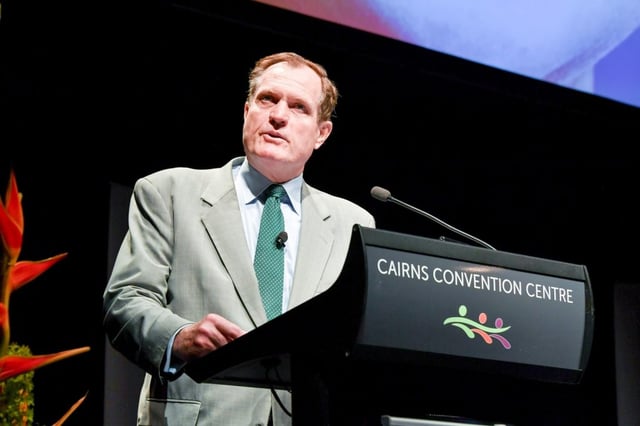written by Robert Deutsch CTA *
At The Tax Institute’s National Convention in Cairns in March the Commissioner of Taxation, Chris Jordan AO, disclosed a revealing fact – the percentage of returns that are incorrect when prepared by tax agents on behalf of taxpayers is greater than the percentage of incorrect returns prepared by taxpayers themselves.
This is a particularly important issue for The Tax Institute as a body, and for our membership. It is important that we collectively take ownership of this issue and either demonstrate why the issue is not as bad as suggested or, if it is, that we take steps to fix the problem.
To that end, the Tax Institute has asked for some detailed granular information both regarding the nature of the errors that have been made and clarification as to whether a larger number of incorrect returns are being prepared by a few agents or whether the problem is more widespread. We are also seeking to clarify whether the data differs between Institute member and non-member agents. Further detail in this regard is expected in the near future and we will share whatever information we can with our members.
In the meantime, I will remind readers from time to time about some of the foundation principles that underpin the deductibility of work-related expenses. I apologise in advance to those who think my contributions are simplistic or condescending (or both), but I think we need to tackle this problem head-on before someone else tries to do it for us or, more likely, to us.
I start with the ‘so-called’ Golden Rules as outlined in the Commissioner's speech in regard to a worker claiming a work-related deduction. The Commissioner expressed it as three Golden Rules, but I would prefer to see it as four Golden Rules as follows:
- The taxpayer must have spent the money
- The expenditure must not have been reimbursed to the taxpayer either directly or indirectly
- The expense must be directly related to earning by the taxpayer of his or her income
- The taxpayer must have some sort of record to prove that the expense was incurred (which can be produced if asked).
Importantly, there is no such thing as a standard deduction. This appears to be a point of considerable confusion arising largely as a result of the broad legislative principle that, if the total work-related expenses do not exceed $300, substantiation of the expenses is not required.
No substantiation means only that a taxpayer does not need to fully substantiate with a detailed formal invoice as per s 900-115 of the 1997 Tax Act. That level of detail would need to include the name of the supplier, the amount involved, the nature of the supply, the day the expense was incurred and the day the invoice was made out.
However, even if no substantiation is required, the taxpayer must have spent the money and can still be asked to prove it.
If, for example, a taxpayer claims a total of $250 as work-related expenses, the taxpayer can be asked to provide evidence to show the money was spent. If the taxpayer can provide no evidence that they actually spent the money, the Tax Office can deny the deduction on the basis that the taxpayer has failed the fourth Golden Rule, which is that they need a record to demonstrate that they have spent the money. This is so even though the total is less than $300.
Part of the confusion arises because there is currently a call for a standard deduction to be allowed as occurs in some foreign countries. Those calls suggest that we should allow a standard deduction – i.e. the taxpayer gets a standard deduction without necessarily having incurred the expense. It is important to emphasise that this is NOT the current law. The current law very clearly is that all expenses must have been incurred by the taxpayer without reimbursement before any expense can be claimed.
Proof of the expense could be a bank account debit, some sort of invoice which does not meet the requirements of a detailed tax invoice but which nonetheless evidences the relevant payment was made or, possibly, some form of sworn statutory declaration by a reliable third party (e.g. the taxpayer's employer) which is consistent with the otherwise known facts. In terms of what the ATO may accept in this regard, there are no hard and fast rules. It is important for taxpayers to understand that the onus sits with the taxpayer to prove that the expense was actually incurred. Failure to do so will obviously result in a reversal of the deduction, possible penalties, possible interest and possible further monitoring by the ATO.
Clearly, we need to work together to ensure there is proper compliance with the law. Otherwise, I fear the Government will take the issue out of our hands and work toward a legislative solution which is likely to be of little or no appeal to tax agents generally.
* Robert Deutsch is The Tax Institute’s Senior Tax Counsel. This article was first published in the 29 March 2018 issue of the Institute’s member-only TaxVine newsletter.









